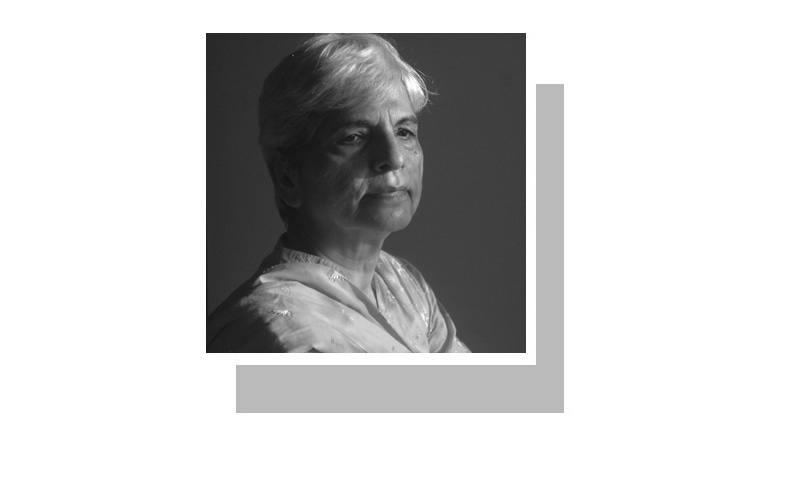
ABDUL Sattar Edhi, the iconic humanitarian, who passed on recently, has been highly eulogised all over Pakistan and beyond. He has also received accolades for something more. He donated his corneas after death which bestowed the gift of sight on two visually impaired people.
Edhi’s donation was of immense importance. Coming from a person held in such admiration by all, his example has inspired many. That is what we need today — heroes who lead by example and not words alone. As it is, Edhi was a man of few words.
Dr Naqi Zafar, the secretary of the Transplantation Society of Pakistan, tells us that after the public learnt of Edhi’s eye donation, 504 people came forward to sign organ donor cards. This was a steep rise in a short period considering 1,390 people had become donors in four years since the Sindh Institute of Urology and Transplantation computerised its donor database and launched a campaign to mobilise people to will their organs posthumously to give patients with end-stage renal failure a new lease of life.
To many of us who have signed donor cards, it appears strange and incomprehensible why people are reluctant to part with their organs when they will no longer be needed. One mufti actually condemned Edhi for his noble act saying blindness was something given by God and should be accepted as such by the one afflicted by it. Strange logic — should science and medical research shut up shop? A wit responded by saying it was nature’s doing that babies were born without clothes.
The challenge is to motivate people to sign donor cards.
The few muftis who oppose organ donation would do well to read up Majmua Khutabat edited by Mufti Muneeb-ur-Rahman. It records the proceedings of a seminar organised by the SIUT that brought a large number of religious scholars together to discuss the issue of deceased organ donation. Practically all of them agreed with their colleagues from Al Azhar, Saudi Arabia, Jordan and Iran who quote religious scriptures to prove that Islam recognises organ donation and brain death.
Dr Naqi Zafar tells me that in Pakistan, 30,000 people die of renal failure (as Edhi did) and 100,000 go down with liver failure. In 2015, only 900 kidney and 139 liver transplantations were performed in Pakistan. In every case, the organs were taken from live donors. The figures for organ failure can be expected to go up because our population is growing fast. Precious little is being done to promote preventive medicine, sanitation and potable water supply that alone can reduce morbidity by millions.
How urgent is the need to enhance the number of donors is pretty obvious from the resurgence of the illegal organ trade and tourism in the country that had virtually been wiped out after the Transplantation of Human Tissues and Organs Act 2010 had been enacted and many unscrupulous persons involved had been brought to court. Now it is reported that the trade is on the rise again.
Hence the need to give a fillip to the campaign. We need more humanists like Navid Anwer, the young man who lost his life in a road accident and became Pakistan’s first deceased organ donor in 1998 even before the programme had been institutionalised. Pakistan has had only five deceased organ donors so far, who are shining examples in a population of over 190 million.
The main practical constraint in promoting deceased organ donation is that organs can be used for transplantation only when the donor suffers brain death, that usually occurs in an ICU setting. Only 1,014 brain deaths were recorded in 2007. The challenge is to make the concept of brain death understandable to all and motivate people to sign donor cards. Although Islamic scholars have issued fatwas accepting brain death and deceased organ donation, cultural resistance and misunderstandings persist.
The SIUT, the premier transplantation institution in the country, has provided laudable holistic services free of charge to millions of patients for 40 years. Headed by another iconic figure, Dr Adib Rizvi, the institute treats healthcare as a basic right with its governing philosophy being compassion and ethics. Its public awareness campaigns have helped but mainly in live related donations.
One would have believed that corneal donation would meet less resistance since it is not as complicated and a donor doesn’t have to die in an ICU setting. In spite of the high incidence of corneal blindness in the country, people have not been generous. Corneas have had to be imported.
One hopes that people will understand the importance of organ donation for saving lives. Clerics can play a pivotal role in this regard. It is more important that we shed some of our cultural inhibitions and talk about issues such as health and terminal illness. More importantly, there is need for a discourse on life and death, and not simply life after death, a popular theme in sermons from the pulpit.
Published in Dawn, September 2nd, 2016











































